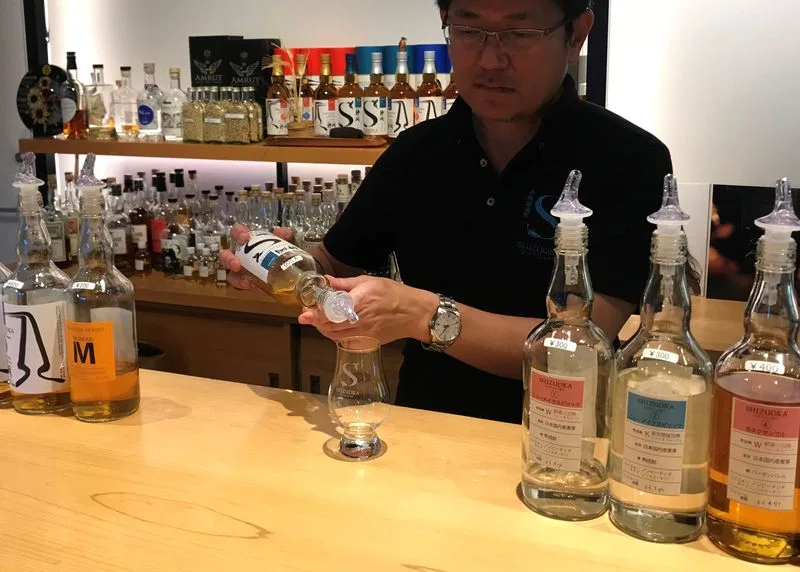Japan, a nation celebrated for its rich heritage and innovation, is witnessing a transformative era in its whisky industry. As the country celebrates a century since the inception of whisky making, initiated by the establishment of Suntory’s first distillery in Yamazaki in 1923, the landscape of Japanese whisky is undergoing a remarkable change. Today, over 100 licensed distilleries dot the country, a striking increase from just a decade ago, each bringing unique approaches and flavors to the global whisky scene.
A quintessential example of this innovation is the Shizuoka Distillery, a frontrunner in Japan’s burgeoning wave of independent whisky makers. Founded in 2016 by Taiko Nakamura, inspired by the intimate yet globally renowned distilleries of Scotland, Shizuoka Distillery has introduced the world’s only wood-fueled fire beneath a whisky still, using cedar from nearby forests. This distinct method is one of many novelties employed by these craft distilleries to distinguish themselves in the competitive market.
The emergence of these craft distilleries follows a period of fluctuating fortunes in the Japanese whisky industry. Initially perceived as mere imitations of Scotch whiskies, Japanese single malts and blends began garnering international acclaim around 2008. This global recognition led to an overwhelming demand that soon outstripped supply, causing a dramatic surge in prices. Rare bottles from Japanese distilleries, such as a collection from Ichiro’s Malt, have fetched staggering amounts at international auctions, reflecting the high esteem of Japanese whisky.
Major players in the industry, like Suntory and Nikka, have responded to this upsurge by increasing their production capacities. Significant investments, such as Suntory’s 10 billion yen upgrade of its distilleries, are a testament to the growing global demand for Japanese whisky. These industry giants have expressed support for the rising craft distilleries, emphasizing the collective goal of upholding the quality of Japanese whisky.
The influx of foreign investment is further shaping the landscape. Global firms like Diageo are acquiring stakes in newer distilleries, while others like IJW Whiskey Company are establishing expansive operations in Japan, like the Cedarfield distillery project in Hokkaido.
Amidst this expansion, concerns about maintaining the high standards of Japanese whisky have emerged. With an increasing number of distilleries entering the market, the risk of subpar products tarnishing Japan’s reputation is a topic of debate among industry veterans and newcomers alike. Distilleries like Kamui Whisky, founded by American expatriate Casey Wahl in the remote Rishiri Island, echo these sentiments.
However, distillers like Nakamura of Shizuoka Distillery remain committed to honoring the legacy of their predecessors, emphasizing the importance of quality and patience in crafting whiskies that meet the revered standards set by the industry’s pioneers.
As the Japanese whisky industry enters its second century, it stands at the crossroads of tradition and innovation, with a multitude of distilleries ready to write the next chapter in its storied history.
READ MORE:
